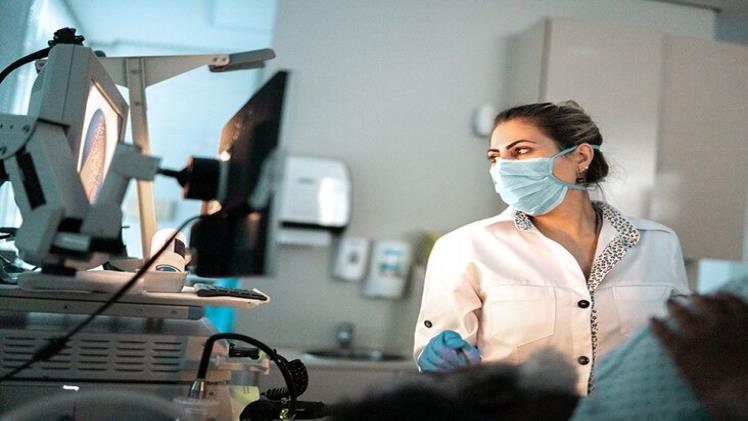
Gastroesophageal Reflux Disease (GERD) is a common digestive condition where stomach acid flows back into the esophagus, often causing symptoms such as heartburn, regurgitation, or chest discomfort. In Singapore, the number of people experiencing GERD is steadily increasing, influenced by factors like dietary habits, stress, and lifestyle changes. While many dismiss occasional reflux as a minor issue, untreated conditions can lead to complications such as inflammation, narrowing of the esophagus, or even Barrett’s esophagus, a precancerous condition. This makes early diagnosis and proper management essential for long-term health.
Endoscopy plays a crucial role in GERD care, as it allows doctors to directly assess the esophagus and stomach lining for signs of damage or complications. With the guidance of a GERD specialist Singapore, patients can receive accurate diagnosis and tailored treatment options. Read more to explore how endoscopy supports effective GERD management.
Understanding GERD and Its Symptoms
GERD occurs when stomach acid repeatedly flows back into the esophagus, irritating its lining. While occasional reflux is common, GERD is diagnosed when symptoms are frequent and persistent, often affecting quality of life and sleep.
The most common symptoms include:
- Heartburn – a burning sensation in the chest, usually after meals or when lying down.
- Regurgitation – a sour or bitter-tasting fluid backing up into the throat or mouth.
- Chest discomfort – sometimes mistaken for heart-related issues.
- Difficulty swallowing (dysphagia) – caused by narrowing of the esophagus.
- Chronic cough or hoarseness – especially when acid reflux irritates the throat and vocal cords.
Some people may also experience less obvious symptoms, such as dental erosion, bad breath, or asthma-like breathing problems triggered by reflux. Because GERD can mimic or overlap with other medical conditions, accurate diagnosis is crucial. A GERD specialist or gastro specialist can help distinguish this condition from other causes of chest pain or throat discomfort. By identifying the condition early, patients can benefit from appropriate lifestyle advice, medications, and diagnostic procedures like endoscopy to prevent long-term complications.
When is Endoscopy Recommended for GERD?
For many people with GERD, lifestyle changes and medications may be enough to control symptoms. However, endoscopy becomes important when symptoms persist despite treatment or when complications are suspected. Alarm signs such as difficulty swallowing, unexplained weight loss, persistent vomiting, or blood in the stool or vomit should not be ignored, as they may indicate more serious damage to the esophagus. In such cases, a gastro specialist will usually recommend an endoscopic evaluation to determine the extent of the problem.
Endoscopy is also advised for individuals with long-standing GERD symptoms, especially those over 40, as prolonged acid reflux can increase the risk of Barrett’s esophagus, a condition that can develop into esophageal cancer if left untreated. By using endoscopy, doctors can not only confirm the presence of GERD but also detect early changes before they become more serious.
Endoscopy Procedure
An endoscopy is a straightforward and commonly performed procedure that allows doctors to closely examine the esophagus, stomach, and the beginning of the small intestine. It is typically carried out in a clinic or hospital setting under mild sedation, ensuring patients remain relaxed and comfortable throughout.
The process usually involves:
- Preparation – Patients are asked to fast for several hours before the procedure to ensure the stomach is empty.
Sedation – A mild sedative is administered to ease discomfort and reduce anxiety. - Insertion of the scope – A thin, flexible tube with a camera (endoscope) is gently guided through the mouth into the esophagus and stomach.
- Examination – The specialist inspects the lining for signs of inflammation, ulcers, strictures, or Barrett’s esophagus.
- Recovery – Most patients rest briefly after the procedure and can return home the same day.
What Endoscopy Reveals in GERD Patients
One of the main advantages of endoscopy is its ability to detect changes in the esophagus and stomach that are not visible through other tests. In patients with GERD, endoscopy can reveal signs of esophagitis (inflammation of the esophagus), which explains symptoms such as pain or difficulty swallowing. It can also detect strictures, or narrowing of the esophagus, that result from repeated acid exposure. Another important finding is hiatal hernia, a condition where part of the stomach pushes up through the diaphragm, worsening reflux symptoms.
Beyond these structural issues, endoscopy also helps specialists identify Barrett’s esophagus, a precancerous change in the esophageal lining caused by chronic acid reflux. Detecting this early is crucial because it allows for close monitoring and timely treatment to prevent progression to cancer. With these insights, a gastro doctor can develop a more accurate and individualized treatment plan, ensuring patients receive not only symptom relief but also long-term protection against complications.
Benefits for Consulting a Gastro Doctor in Singapore
Seeing a gastro doctor ensures patients receive accurate diagnosis and personalized care. Specialists can distinguish GERD from other conditions with similar symptoms and use advanced tools like endoscopy to assess the severity and underlying causes. Beyond diagnosis, they provide guidance on lifestyle changes, dietary adjustments, and appropriate medical or surgical treatments. Early consultation helps manage symptoms effectively, prevent complications, and improve long-term health.
Conclusion
GERD is a common but potentially serious condition that benefits from early evaluation and tailored treatment. Endoscopy plays a key role in detecting complications and guiding effective management, helping patients achieve long-term relief. Consulting a gastro doctor ensures that care is personalized, evidence-based, and focused on both symptom control and prevention of complications. For expert guidance and comprehensive GERD management, visit our clinic at:
Andrea’s Digestive Clinic: Colon | Liver | Gallbladder | GERD | Acid Reflux Specialist
Royal Square at Novena and Royal Square Medical Centre
101 Irrawaddy Rd, #21-11/12 Royal Square Medical Centre, Singapore 329565
Phone: +65 6264 2836



